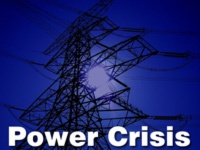
The constant inability of our nation’s governments in finding permanent solutions to Ghana’s many problems stems from the enduring politics of reciprocal mistrust and rejection of the cliché that good governance is made possible by an interplay of ideas. By sidelining the opposition, the current administration is forestalling the nation’s effort to address the energy problem. In my opinion, the NPP is taking advantage of the magnanimity of the receptive Ghanaian society where the worst of policies are left unquestioned. In all frankness, our current leaders’ perception of politics revolves around the subsisting mindset that by allowing their political adversaries to be part of the solution, they will expose their Achilles' heel. This untenable attitude has foisted on our nation a culture of an unnecessary dependency on foreign governments and institutions even when the problem is inconsequential and can be (re)solved internally. It has also diminished our nation’s image of self-reliance.
While our leaders are quick to reject homegrown solutions to national problems, they enthusiastically accept externally-tailored solutions at a cost to the nation’s declining treasury. Unbeknownst to them, the foreign solution(s) that they adore and treat with heaven’s grace are sometimes constituted by Ghanaian technocrats who live outside Ghana and work for Western institutions. The above highlights our political leaders’ misreading of the mechanics of nation-building and participatory governance. It also underscores the leadership’s underestimation of the intellectual ability of Ghanaians to help solve the nation’s problems including the deepening energy crisis.
The belief that, by allowing the opposition to be part of the solution process will dissipate the government’s political capital among its loyal supporters is absurd. We know better as a nation, and people. Don’t we? In my person opinion, to invite the marginalized to be part of the centre does not pollute the centre by any means. Rather, it adds to the wealth of solution-driven ideas and the government’s attempts to find lasting solutions to the nation’s growing artificial problems caused by years of economic mismanagement, unbridled thievery of state resources, political patronage, policy imprecision, corruption and horizontal apathy.
Do Ghanaians deserve the unending afflictions of the government’s unilateral policy on the energy crisis? Does any governing or constitutional protocol allow the state to subject its citizens to the discomforts of unnecessary power rationing, when in fact, it (i.e. the state) continues to reject proposals from the nation’s solution-oriented human capital on grounds of political differences? For how long can, and must we tolerate the government’s exploitation of our spirit of generousity? Whose welfare must take primacy over the other? The ruling administration’s or Ghanaians’? In Ghanaian politics, solutions are only found when there is an impending election. Without a doubt, the nation will see an uninterrupted power supply come the 2008 parliamentary and presidential election(s). This will be followed by the customary chest-beating partisan hymn(s) in consonance with an ecstatic ululation from a placable public. Without a workable solution to the energy crisis, the increasing possibility that this fixable problem could metastasize into an ominous threat to the nation’s economic development and national security is not an overstatement. In this specific context, I used “national security” to imply a sharp decline in the nation’s economic fortunes; a situation which could make it difficult for the state to provide basic social necessities such as accessible healthcare.
Given the nation’s precarious energy supply, how does the Minister for Finance and Economic Planning justify the inability of his ministry to fax a funding proposal to the World Bank/International Monetary Fund because of power outage? How does the President expect the nation to achieve an optimal level of production when the manufacturing sector is forced to layoff its workforce because of constant power interruptions? The exponential increase in the price of a bag of cement is enough evidence to prove my point on the scope of the problem. Should the nation’s energy crisis continue for a protracted number of months, the Ghanaian economy will wither. Matter of fact, it will undock from its present economic orbit to join other outer-periphery economies. By marginalizing the nation’s opposition parties, and treating their many requests to be part of the energy-solution process as a child’s cry for an unworthy attention, the present administration is denying the Ghanaian economy the boost it needs to sustain economic growth and development.
With the exception of a few, some of the nation’s media outlets and journalists have abdicated their moral responsibility to champion national causes. Either by destiny, or by their own contrivance, certain journalists have become political turncoats who prefer to spend endless hours on radio talk-shows to defend their political patrons than write on matters relating to national unity, economic development and social justice. Matter of fact, some of them have become radio lawyers without a law degree, with others calling themselves political analysts without ever taken a course in POLSCI 101. Sometimes, I scratch my head in extreme frustration to make a deductive distinction between traditional journalism, which our nation once pride herself, and the tabloid’s “Alice In the Wonderland” fairytales which are mostly premised on partisan subjectivity and tasteless propaganda.
In my appraisal of Ghanaian politics, one thing remains certain; we adulate the inexperienced and boastful, and malign the most effective, all in the name of partisan politics. It is worth stating that, bad policies do not identify individuals either by their political affiliation or ethnicity. Like nuclear radiation, we all stand at the brink to becoming victims of bad policies. The continue(d) politicization of the nation’s energy crisis constitutes a grave attack on the nation’s immune system. Without radical therapy, the Ghanaian economy will thin away, and will ultimately die without a whimper. Democracy works better, when political stakeholders allow peripheral inputs to be part of a nation’s expedition for lasting solutions. Look out for my next article titled, “21st Century Sino-Imperialism: The Dragon’s Neo-Colonial Adventures to Vapourize Africa’s Remaining Resources.” Good day and cheers.